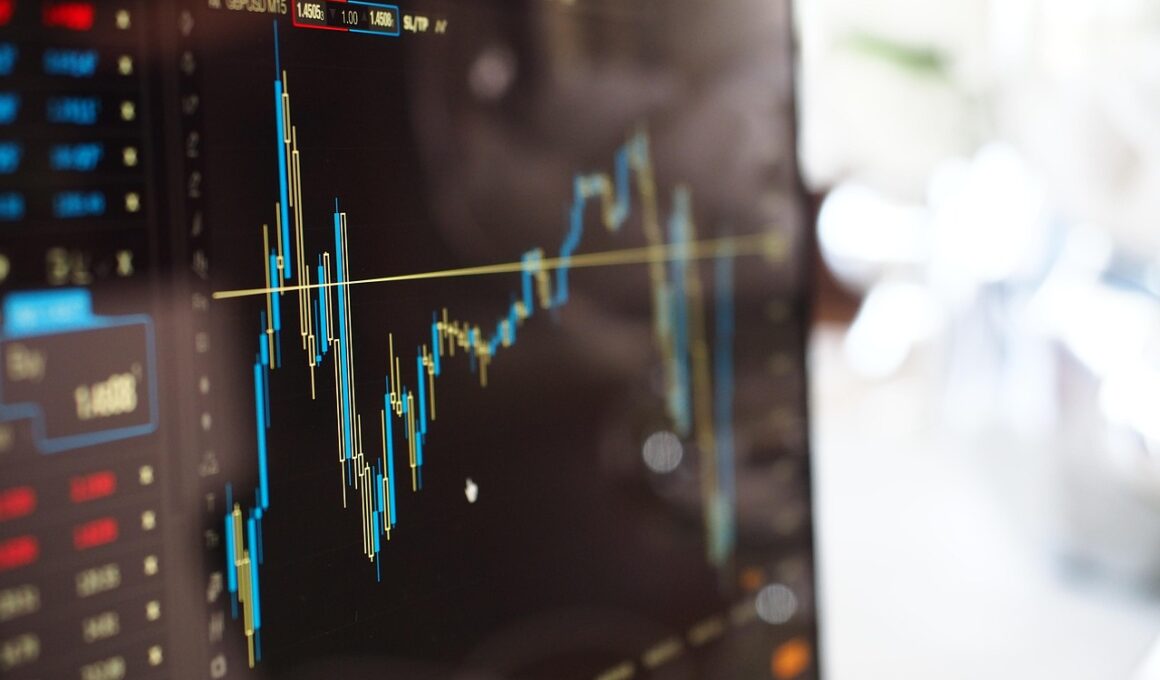Leveraging Social Media for Forex and Stock Market Insights
Social media platforms have transformed how investors gain insights into the Forex and stock markets. Unlike traditional information sources, social media offers real-time updates and diverse viewpoints from various financial analysts and enthusiasts. Platforms like Twitter, LinkedIn, and Instagram provide financial news, market sentiment polls, and updates on current trends. Investors can quickly find relevant discussions by following hashtags related to Forex and stock trading. Moreover, many investors utilize YouTube channels that focus on trading strategies, providing valuable visual content for more complex topics. Active participation on these platforms also enables traders to ask questions and access insights, sharing experiences about market trends. The interactivity of social media encourages knowledge sharing, allowing users to build networks that can be invaluable for Forex and stock trading. Following established traders or financial influencers can help novice traders understand the markets better. Diverse opinions available across platforms also help investors formulate a well-rounded perspective regarding any investment opportunities. Properly utilizing social media can significantly enhance decision-making, making it an essential aspect of modern trading.
Building a Community for Learning and Sharing
Establishing a community around Forex and stock market topics on social media can greatly facilitate learning. By joining groups and forums dedicated to trading, investors can exchange ideas and strategies with like-minded individuals. These platforms enable users to share their experiences, including successful trades or lessons learned from mistakes. A supportive community helps traders feel empowered to take informed risks. Furthermore, participating in webinars and live chats hosted by expert traders is another excellent way to gain deeper insights into market movements and trading tactics. As traders engage within these social networks, they can better understand different market conditions and adapt their strategies accordingly. Mutual support is often beneficial when navigating the volatile Forex and stock markets. Members can help each other when uncertainty arises, providing a safety net that encourages continuous learning and improvement. Utilizing social media to build connections is not just about gaining followers; it’s about nurturing relationships among traders who can support one another. Engaging in discussions and absorbing various trading philosophies can significantly enhance one’s trading approach.
The effectiveness of social media as an educational tool in trading depends on curating the right sources of information. Accurate and trustworthy content is crucial because unreliable information can lead to bad trading decisions. Traders should follow specific profiles and pages that have proven expertise in Forex and stock markets. Look for analysts who provide detailed analysis, backtesting results, and relevant market commentary. Additionally, users should be wary of overly sensationalized content that prioritizes gaining attention over factual reporting. Engaging in critical thinking when assessing the information shared on social media is essential for avoiding pitfalls. Users can enhance their decision-making by cross-referencing content from various trustworthy sources. Furthermore, an environment that encourages critical questions and constructive feedback will lead traders to develop their analytical skills. Diversifying the type of content consumed can also contribute positively to a trader’s growth. By seeking insights from different sectors of the market and different trading styles, users can build a broad understanding. Staying informed has never been easier, and social media serves as a valuable tool for keeping abreast of emerging trends.
The Role of Influencers in Trading Education
Influencers in the Forex and stock trading community can play a pivotal role in shaping market perspectives. Many traders turn to social media personalities who have demonstrated consistent success for education and mentorship. These influencers often offer tutorials, insights, and real-time updates that can be instrumental in understanding the complexities of trading. Sometimes, these personalities also share exclusive content on platforms like Patreon or provide memberships that offer deeper insights and one-on-one coaching. It’s essential, however, to assess their credibility before following any influencer. Verification of their trading performance, approach, and consistency is vital to ensuring the reliability of their advice. Furthermore, the rapidly changing market dynamics mean what works for one trader may not necessarily apply to another. Thus, while influencers can aid in understanding general strategies, individual traders should still develop their methods suited to personal risk tolerance and preferences. Engaging with such influencers can provide access to a wealth of knowledge, but it should complement an active approach to learning. Critical engagement with their content can lead to better trading practices.
An often-overlooked aspect of social media in Forex and stock trading is the social sentiment analysis derived from user-generated content. Platforms like Twitter and Reddit often reveal the mood regarding certain stocks or currencies, which can significantly impact traders’ decisions. By examining trends in hashtags, keywords, and discussions, traders can gauge public sentiment and potentially predict market adjustments. This collective intelligence can provide valuable insights not readily apparent through traditional analysis. Social sentiment also compels traders to conduct their research on companies or currencies that emerge as ‘hot topics’ on social media. However, sentiment analysis should be used cautiously. The overall market sentiment can lead to significant price movements driven by emotion rather than tangible factors. Traders need to differentiate between genuine growth opportunities and passing fads influenced only by social chatter. Implementing sentiment analysis as a complementary tool alongside traditional technical and fundamental analysis strategies can lead to more comprehensive market insights. Balancing these methods can enhance traders’ ability to make informed decisions and respond nimbly to market shifts.
The Importance of Staying Updated and Engaged
Staying updated with social media trends is crucial for success in Forex and stock trading. Financial markets are dynamic and continuously influenced by global events, and social media offers a real-time snapshot of these changes. By actively engaging in discussions and following developments online, traders can quickly adapt their strategies according to the market’s pulse. Also, engaging with news articles shared on social platforms can help traders comprehend complex financial news. Participating in discussions can also stimulate the understanding of the wider financial environment. Regularly contributing to conversations enhances a trader’s visibility in the community and fosters relationships with other seasoned traders while also providing opportunities for collaboration. Leveraging social media for trade alerts and key economic announcements is another way for traders to remain informed. Automated alerts for significant shifts can be invaluable for time-sensitive trades. Overall, maintaining an active presence across relevant social platforms allows traders not only to react promptly but also to educate themselves continuously. Social media should not be viewed as just a source of information; it also functions as a critical resource for real-time trading education.
In conclusion, the integration of social media into Forex and stock market trading is undeniably beneficial. By facilitating real-time information exchange, educational opportunities, and community building, social media serves as a powerful tool for modern traders. The ability to gain insights quickly, analyze social sentiment, and learn from fellow traders accelerates the growth of individual trading proficiency. For novices, social media can demystify trading practices and nurture a positive learning environment. For seasoned traders, it offers fresh perspectives and courses of action based on community knowledge. However, trading based solely on social media trends without thoughtful analysis may lead to unforeseen risks. It is essential for traders to utilize the information gathered critically and complement intuition with verified knowledge. Integrating traditional market analysis with insights gained from social platforms can pave the way for more balanced trading decisions. Embracing both the social and analytical aspects of trading enhances not just individual performance but also contributes to overall market growth. Moving forward, the dynamic relationship between social media and trading will likely evolve, necessitating continuous adaptation in strategies to maintain competitiveness.
Innovative Tools for Effective Social Trading
As trading technology advances, social platforms are increasingly integrating innovative tools that facilitate effective social trading. From automated trading functions to real-time data sharing, these tools enhance the overall trading experience. Social trading allows users to replicate the strategies of successful traders, which can be particularly beneficial for those new to the markets. Additionally, many platforms now include analytical tools that provide insights into trading patterns observed across social channels. These tools enable traders to assess which strategies are popular among successful traders, thereby informing their own trading decisions. By adopting a data-driven approach, users can find compelling opportunities while mitigating risks. Furthermore, the emergence of virtual trading communities encourages collaboration and the sharing of resources, which fosters a culture of learning. Social trading combines the power of community with cutting-edge technology to allow traders to leverage each other’s strengths and weaknesses. Investors participating in these environments develop a clearer understanding of market influences and improve decision-making. Embracing these innovative tools on social media platforms continues to revolutionize how traders engage with the Forex and stock markets. Progress in trading technology promises to redefine effectiveness in social trading.


